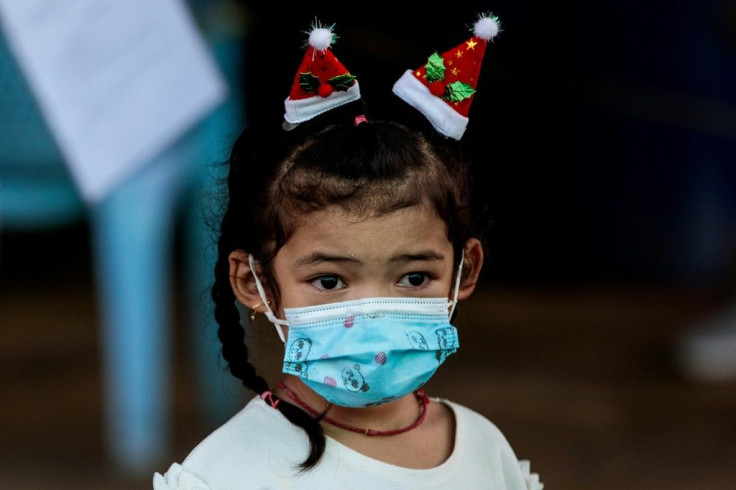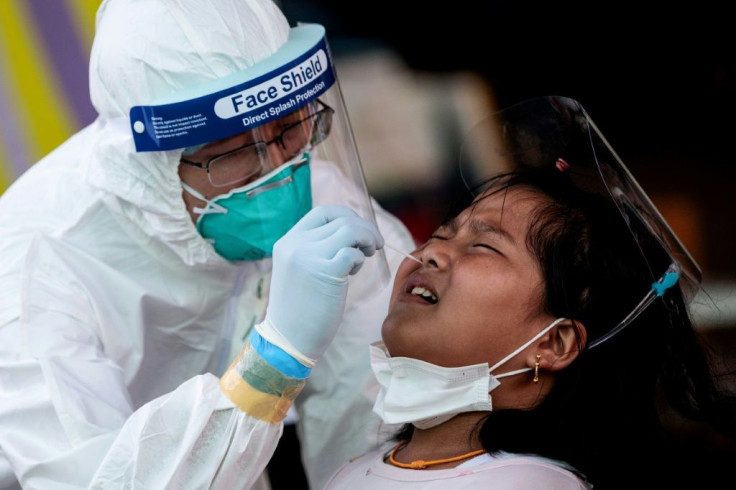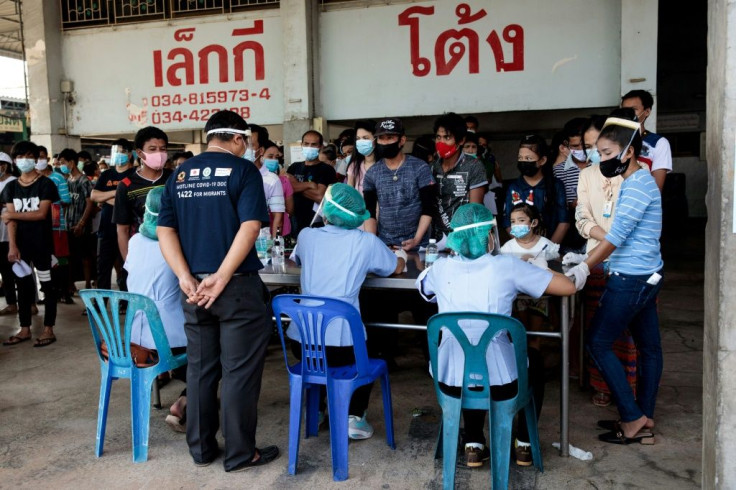Thailand Clamps Down On Virus Outbreak At Seafood Market
Thailand's biggest seafood market and the surrounding area were locked down Saturday to contain a coronavirus outbreak, after the country's largest spike in cases since the pandemic began.

Despite being the first place to register an infection outside China, the kingdom had been mostly unscathed by the pandemic, with just over 4,000 cases and 60 deaths so far.
But on Saturday night, authorities announced 548 positive cases connected to a seafood market in Mahachai, Samut Sakhon province, about 40 minutes southwest of Bangkok.

"We have announced the shrimp market is a severe disease control area," provincial governor Veerasak Vijitsaengsri said.
A strict lockdown and curfew were introduced around the market until early January, affecting schools, sports stadiums, playgrounds and shopping malls.

However, Sunday's local elections were expected to go ahead as planned, as long as voters wore masks.
Foreign workers have been banned from leaving the province.
"The total number is 548 and 90 percent (of cases) have no sign of sickness and most of them are foreign workers," said Opas Kankavinwong, director general of the Disease Control Department.
Moe Kyaw Thu from the Raks Thai Foundation, which is coordinating testing, said it aimed to screen 4,000 people over the weekend.
"The population in Mahachai is roughly 70 percent Thai and 30 percent migrant workers, which means the source of the virus spreading could come from migrant workers, particularly Myanmese workers," he said.
Myanmar has had more than 115,000 cases of coronavirus and Thai authorities have been ramping up border controls over recent months.
© Copyright AFP 2024. All rights reserved.





















